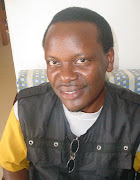
Ebenezer T. Bifubyeka (Ten)
Biafra, Mbarara, Western Uganda.
THREE lions have been sighted in Lake Mburo National Park along Mbarara-Masaka highway, after a decade without sighting any lion or lioness in the park (The New Vision, January 13, 2009).
The lions last set their feet in the park in 1997 before they were either hunted down or poisoned to extinction by herdsmen who grazed on the grounds of the park.
Now the lions are back and the herdsmen are still there, bold and enthusiastic! Are the lions safe? The population of lions is dwindling throughout the country yet they boost tourism industry – Uganda’s chief foreign income earner.
This alone calls for the government departments in-charge of tourism and environment to protect the lions like gold.
Barely three months ago, at least three lions together with unidentified number of cabs, hyenas and vultures - were poisoned to death in Queen Elizabeth National Park, according to the executive director of UWA, Moses Mapesa!
The ill-fated lions were poisoned possibly by the neighbouring Basongola farmers – who allegedly did it to avenge themselves on the lions that trailed into their farm and devoured two cows! Worse still, the poison ended up trapping other animals and birds!
From August 2006 to August 2007, Basongola herdsmen reportedly poisoned at least 13 innocent lions in this same park: Queen Elizabeth National Park. The lions were fed on meat with poison in a bid to protect their herds! We must protect what we want in the national parks: intruders (herdsmen) or the lions.
According to Uganda’s conservation manager, Tom Okello, less than 40 lions remain in Queen Elizabeth National Park, from a population of nearly 100 a decade ago! And the Ultimate Media states that Queen Elizabeth National Park draws about 45,000 visitors (40% of all tourists that visit Uganda) every year to see the amazing animals like lions.
Maybe the lions that have returned to Lake Mburo National Park are refugees looking for a safe haven in a bid to survive the poison-hearted citizens that want to poison them. If so, then let those few remaining lions achieve their wish – of staying safe.
If necessary, let the government cage those lions up or fence the entire park. Better still; prohibit the herdsmen from grazing in the park. Strictly regulate and restrict the herdsmen around the park as well as spot hunting. Unless we exhibit such concern and passion, the poisoning of our animals will continue and ultimately lead to their extinction!
If necessary, let the government cage those lions up or fence the entire park. Better still; prohibit the herdsmen from grazing in the park. Strictly regulate and restrict the herdsmen around the park as well as spot hunting. Unless we exhibit such concern and passion, the poisoning of our animals will continue and ultimately lead to their extinction!
It’s our role all of us – whether you are a politician or not - to act. Yes, we must. Let’s all join the verbal war of spreading the conservation gospel.
Most probably, farmers kill the lions because government doesn’t compensate them for the loss of their domestic animals that fall prey to wild animals when they go outside the parks to hunt for cows, antelopes and crops. According to Mapesa, UWA doesn’t have the funds to compensate every affected farmer.
Most probably, farmers kill the lions because government doesn’t compensate them for the loss of their domestic animals that fall prey to wild animals when they go outside the parks to hunt for cows, antelopes and crops. According to Mapesa, UWA doesn’t have the funds to compensate every affected farmer.
“It is true that animals do trail outside the park and prey on the farmers’ livestock and crops; but we can’t afford to compensate whoever is affected because it’s hard to measure the damage like determining the worth of a lost cow. We only help the victims recover from the loss and then caution them about negligence,” he explains.
From all signs, our communities need to develop good will for nature and cooperate. The Banyankore say, “Agetereine nigo gaata eigufa” (“it’s combined efforts that break the bone”). Let all of us: churches, schools, mosques, NGOs, farmers, artists, army and of course politicians - join hands and save our mighty environment. Yes, we can.
Ends.
Wordcout: 600.


No comments:
Post a Comment